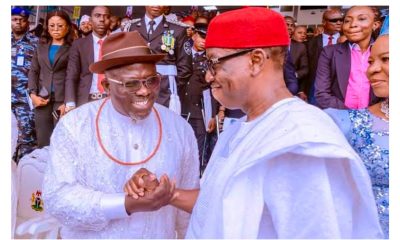•From left: Lagos State Attorney-General and Commissioner for Justice Moyosore Onigbanjo (SAN); Sanwo-Olu; Abiodun and Ogun State Attorney-General and Commissioner for Justice Akingbolahan Adeniran during the signing of athe MoU.
In several places, the boundaries between Lagos and Ogun states have blurred so much that telling them apart is almost an exercise in futility. This reality has confronted residents of the boundary towns for a long time. Now, the governments of the two states have accepted this and are now going to develop the states together. Governors Babajide Sanwo-Olu (Lagos) and Dapo Abiodun (Ogun) have signed a Memorandum of Understanding (MoU) to this effect the Lagos-Ogun Joint Development Commission is set to make residents of the boundary areas enjoy visible development, especially in infrastructure.
The launch of the Joint Development Commission marked a new beginning in the bilateral relationship between the neighbouring states, which also share socio-cultural backgrounds. The MoU was signed at the Presidential Lodge in Ibara, Abeokuta, the Ogun State capital. The governors agreed to work on seven key areas of mutual interests, which are expected to boost security, commerce, urbanisation, infrastructure and also solve boundary disputes.
The ceremony was witnessed by Ogun State Deputy Governor Mrs. Noimot Salako-Oyedele, members of the State Executive Council of both states, royal fathers led by the Alake of Egbaland, Oba Aremu Gbadebo, State Chairman of the All Progressives Congress (APC), among other dignitaries.
The areas which the Joint Development Commission will focus on include infrastructural development (development of boundary town roads, waterworks, mass transportation); revenue and taxation (including PAYE remittances, and boundary town revenue management and collection); trade and investment and resolution of boundary disputes.
Other areas encapsulated in the MoU are security (including intelligence sharing and gathering); environmental and physical planning activities (including urban renewal, emergency and disaster management, inland waterways management and traffic management); and agriculture/food security.
Sanwo-Olu noted that his administration’s commitment in ensuring that Lagos becomes a 21st-century economy ‘makes it imperative for us to strategically collaborate with our closest neighbour, Ogun State, for the joint development of our states, the continued growth of our cities and the co-creation of value that encompasses good governance and urban regeneration.
According to him, signing the MoU was to further the relationship which began in 2005 during the tenure of former Governors Bola Tinubu (Lagos) and Segun Osoba (Ogun). He described it as “a game-changer that will transform the urban agglomeration that Lagos has become”.
He said: “We are driven by the desire to stimulate socio-economic growth, bridge development gaps and ensure that Lagos’ megacity status is complemented by pervasive infrastructural development even in boundary towns. This MoU precedes the Joint Development Commission that will be established to mutually tackle some of the issues prevalent in key economic sectors like transportation, environment, housing, health, infrastructure, and security.
“Regardless of the challenges, we are determined to build more livable and stable cities. Our goal is to build sustainable urban cities, where residents of both states have a sense of belonging, embrace participatory governance, and recognise their role in achieving solid urban economies in both states.
“In light of current global practices in managing megacities, it has become obvious that the best way to accelerate socio-economic development in Lagos and Ogun states is by embracing a more collaborative approach for growth, development, and urban sustainability.
“The Joint MoU is a sustainable development agenda under which Lagos and Ogun states will combine resources to meet our present socio-economic needs and prepare for the future. We have nothing to lose but a lot to gain by synergising efforts with Ogun State. I assure you that the stipulations of the Joint MoU will be meticulously implemented. The next step is to establish a joint committee that will implement the terms of the MoU until we are able to formally establish a Joint Development Commission with the approval of the Lagos and Ogun state Houses of Assembly.
“This is not political, but about our people. I, therefore, call for greater collaboration among the 36 states of the country. The common goal is to provide good governance and make life more meaningful for the electorate, and that should be our driving force. We must never forget that, as Nigerians, we are all interconnected, and the fastest way to accelerate socio-economic growth and create an equitable society is by uniting to combat our challenges.”
Sanwo-Olu said the next step after signing the MoU would be the establishment of a joint committee that would implement the terms of the agreement. He added that bills would also be sent to the Houses of Assembly of both states to generate statutory support for the establishment of the economic integration commission.
Abiodun described the commission as ‘a deliberate and methodical effort of two forward-thinking governors.
According to him, the bilateral agreement would have legal backing so the initiative can outlive the present and serve the people well into the future.
Abiodun was hopeful that with the agreement, it would be easier for them to rebuild the Lagos-Ota-Abeokuta and Ikorodu-Sagamu Roads since the letter asking President Muhammadu Buhari to allow them to work on the roads would now have a stronger backing.
He said: “It is undeniable that we share historical and cultural affinities and, before now, successive administrations have mouthed and attempted to have some omnibus or spatial arrangement to have Lagos and Ogun states work together. But, again, never had there been a time that this was concretised or encoded, nor was it a legally-backed structure.
“What we are signing today is a historic Memorandum of Understanding that takes cognisance of what had been envisioned, leading to the establishment of the Prof. Akin Mabogunje-committee on Redeployment of Lagos Megacity Region Plan in 2005/2006. It is a mission accomplished, and a dream come true, to put into action the thought about our states forging a common alliance to jointly tackle issues bordering on security, sanitation, traffic and transportation, waste management, water supply, land use planning, infrastructure development and maintenance, urban renewal and slum upgrading for the mutual benefit of our people and the generality of Nigerians.
“These development imperatives have to be streamlined for us to be serious and focused. This Joint Development Commission will function better to sustain these common goals, and there is no better time than now to deepen not only the relationship between our states but within any contiguous sin the country.
“This MoU is a culmination of various efforts by state and non-state actors who have seen beyond the geographical delineation of our states. We are cognizant of the fact that Ogun is the only neighbour that Lagos has, and that we are a natural overflow of Lagos. There is no way development in Lagos would not have a spiral effect or vice versa. This MoU is therefore a manifestation of the common dream that the country’s largest economy and its industrial capital are forging because both are deliberate, focused and methodical to governance.
“Before now, we had jointly written to President Muhammadu Buhari to release the Lagos-Ota-Abeokuta and Ikorodu-Sagamu Roads for us to rebuild. We believe this agreement would give that letter a stronger backing which might eventually lead to the reconstruction of these roads. Another manifestation of our working together is the Adiyan Water Works which is in Ogun State but supplies water to the people of Lagos State. It will also supply water to us soon.”
Abiodun thereafter presented Sanwo-Olu with a map of both states in plaque form, and adire, the traditional fabric of Ogun State.
Post Views: 977

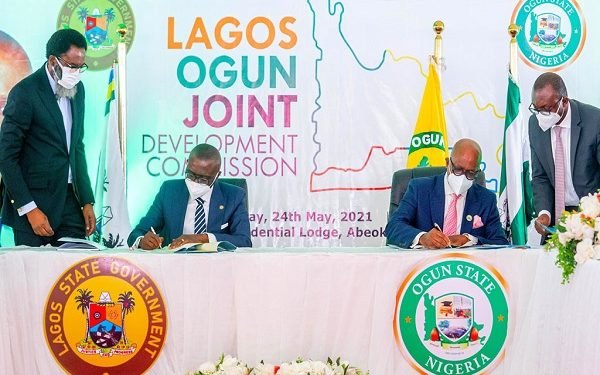
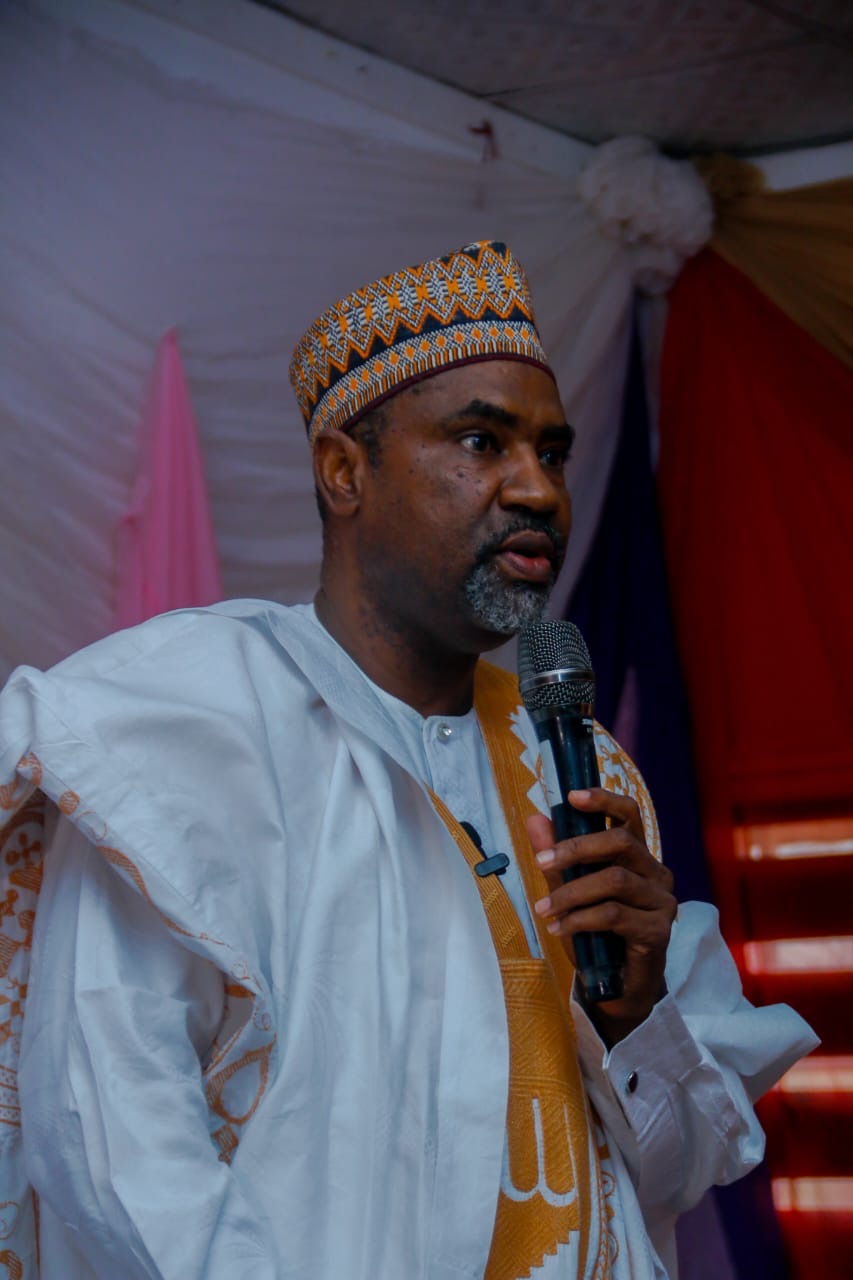
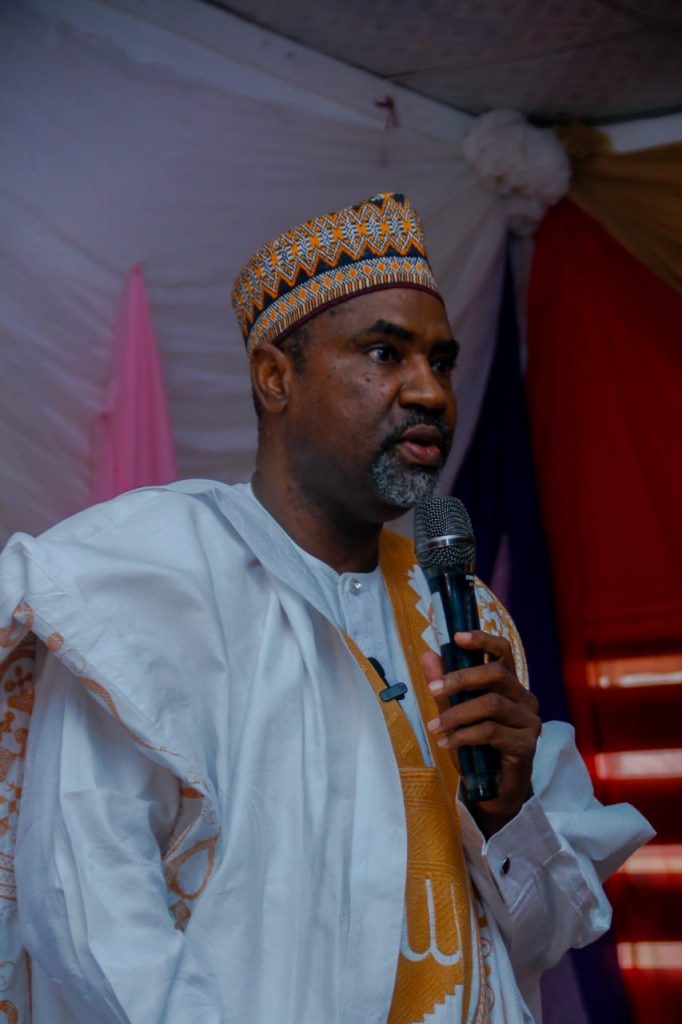 A non-governmental organisation, Advocacy for Integrity and Rule of Law (Airlin) in Nigeria, has kicked off a grassroots campaign across the 19 northern states to promote civic awareness, respect for the rule of law, and voter participation ahead of the next general elections.
A non-governmental organisation, Advocacy for Integrity and Rule of Law (Airlin) in Nigeria, has kicked off a grassroots campaign across the 19 northern states to promote civic awareness, respect for the rule of law, and voter participation ahead of the next general elections.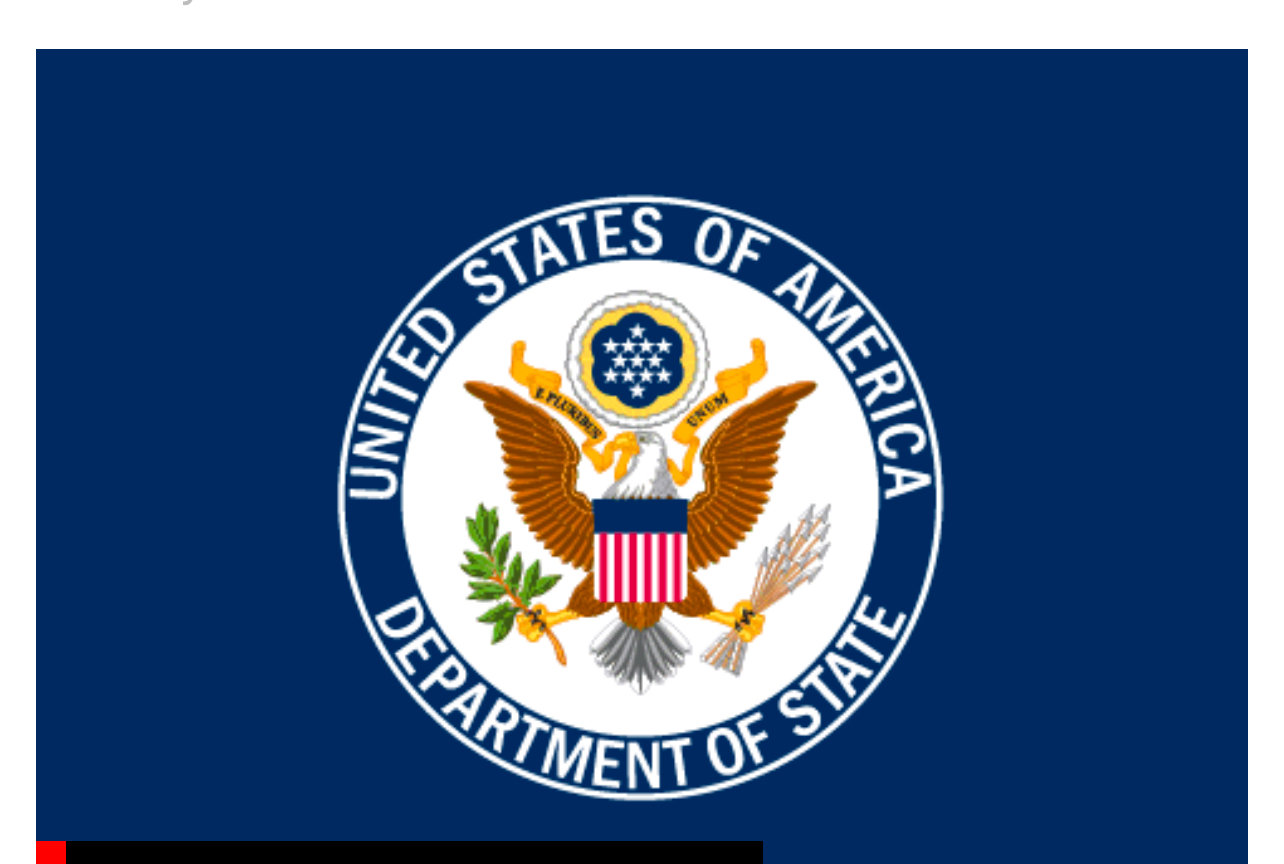
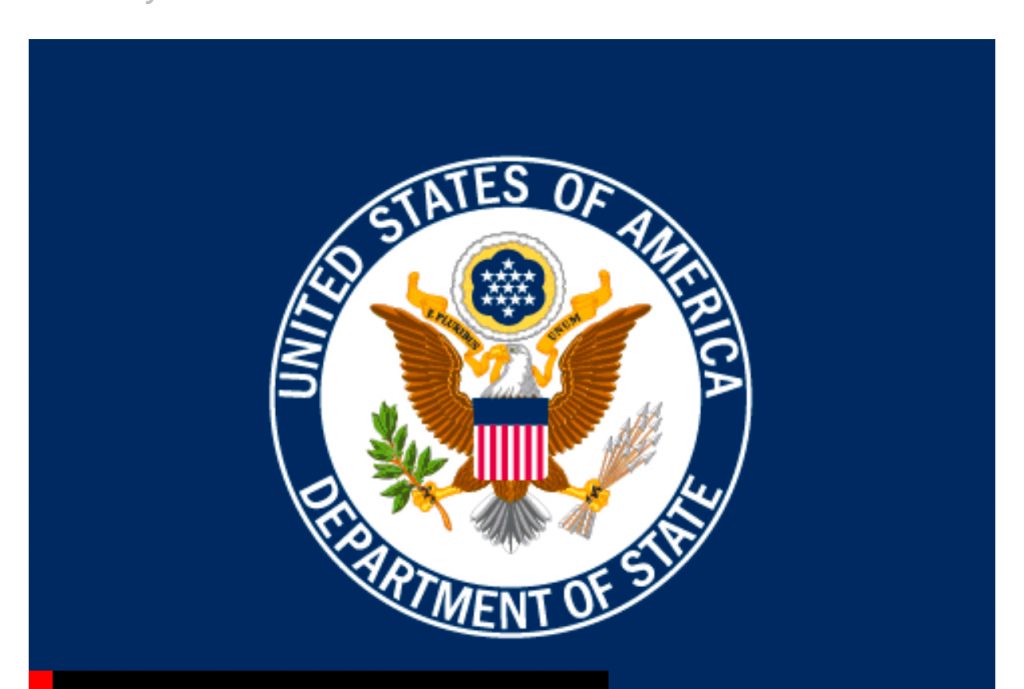 The United States Department of State has announced an update to its non-immigrant visa policy for Nigerians.
The United States Department of State has announced an update to its non-immigrant visa policy for Nigerians.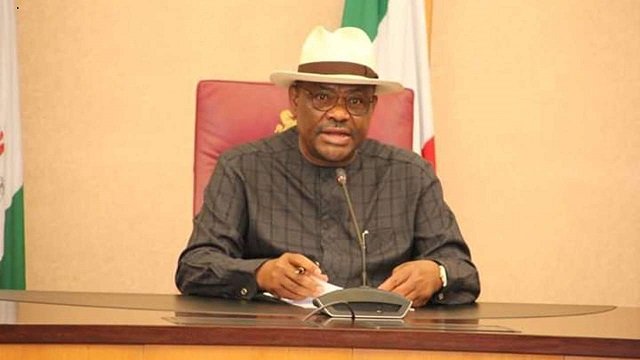
 The FCT wing of the Nigeria Union of Teachers has announced the suspension of its over three-month-old strike by primary school teachers, with a directive for members to return to classrooms starting Wednesday, July 9, 2025.
The FCT wing of the Nigeria Union of Teachers has announced the suspension of its over three-month-old strike by primary school teachers, with a directive for members to return to classrooms starting Wednesday, July 9, 2025.







